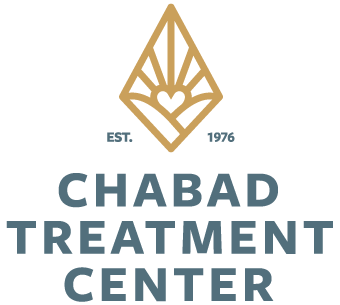A G-d Beyond Our Understanding
“Made a decision to turn our will and our lives over to the care of G-d as we understood Him.”

As a big advocate of the 12 steps, I integrate them into our treatment program at the Chabad Treatment Center. Sometimes however, it seems challenging to combine ideas from the 12 steps with Hassidis (mystical teachings of Judaism). I’ve had many interesting discussions over the years. Lets look at the 3rd step of the 12 step program:
“Made a decision to turn our will and our lives over to the care of G-d as we understood Him.”
In a nutshell, according to the 12 step approach: after recognizing that we need help – that our lives have become unmanageable (step 1), we come to believe that there is a higher power that can indeed help us (step 2), which leads us to this 3rd step; we then turn our will over to this power (G-d) as we understand Him. We are on our way to overcoming our addictive behaviors.
This is a great approach; start with G-d. And it is often an interesting step for Jewish addicts. Many addicts coming from religious backgrounds particularly those who have experienced traumas have been inculcated or developed over the years an understanding of G-d that is either punishing, far away in the heavens, or uninvolved in personal lives; a G-d that doesn’t necessarily have our back. Other addicts from different backgrounds may not have developed a clear concept of spirituality or belief in G-d at all. This step helps every addict define an understanding of a G-d that is there to help him or her. It’s an important step.
However, part of this approach seems somewhat antithetical to some of the inner teachings of Judaism. In Torah teachings, we learn there are two kinds of mitzvahs (instructions from Torah that help us connect with G-d). One set of these kinds of instructions is rational… Surely we could figure out on our own not to kill someone, or not to steal, not to envy… But then there is another set of mitzvahs that we are given that are super-rational… They are beyond our reasoning powers and we would not be able to figure these out on our own. Some of them seem to make sense in hindsight, but some of them are really beyond our comprehension. And the interesting thing is that we are taught these mitzvahs, the one’s from G-d for which we have no understanding, can create even deeper impressions upon us; they can create deeper changes within ourselves. So how does this fit with step 3, where we are supposed to figure out our understanding of G-d and then turn our will over to that understanding to overcome addictions?
To bring these two thoughts together let’s look at some basic concepts of Hassidus or Tanya (one of the prime books explaining Hassidic concepts). Tanya teaches us that our body is like a kingdom. And within it are two souls (acting like two kings); one is a G-dly soul, whose mission is clearly to connect with our higher self, with G-d’s will so to speak. The other king is our animal soul. This king wants to connect with earthly desires; our ego’s wants and pleasures. And both of these kings want dominion over our kingdom (our bodies). They each want to rule. The challenge is to see and help determine who will rule. Surely the 12 steps by helping us to reconnect with a higher power; with our higher self; to believe in and understand that higher power; and to turn our will over to that power is teaching us to train our G-dly soul to have dominion over our animal soul. We are allowing our higher power to conquer the animal soul which is craving drugs and other addictive desires and making our lives unmanageable. Let the G-dly soul take over and manage our lives and we start having manageable lives.
The two approaches, 12 step and Tanya seem to integrate nicely together. Further teachings of Tanya point to the power of prayer in the morning… By setting aside time to pray in the morning…. We help empower the G-dly soul over the animal soul. The 12 step approach reinforces the need for prayer and mediation. It is taught in Hassidism that when we sing praises of G-d: when we recite the part of the Morning Prayer that recognizes G-d that we are literally washing away parts of ourselves that prevent us from connecting with G-d. It’s likened to engraving our outer selves… We are able to engrave into ourselves and remove depression and negative thoughts and reinforce positive beliefs when we take time to acknowledge that G-d is good, G-d is awesome, G-d is there for us and He will help. We sing our gratitude as we come to understand and appreciate G-d.
But what about this concept of going beyond the rational… what is this concept of a G-d beyond our understanding? How does that help us further our recovery from addiction? Does it help us; maybe it gets in the way. We’re trying to get a new understanding of G-d, a clear understanding of G-d, turn our negative thinking around, believe in a positive G-d, sing praises of gratitude to that G-d. So what about these mitzvahs that don’t make any sense to us? Why would we go backwards and start following something we don’t even believe in or understand? Some 12 steps sects (while not sanctioned by the greater 12 step program) even go so far as to suggest to a Jew that they need to stop practicing mitzvahs, set aside everything for a period until they come to an understanding of G-d, a better understanding of what and why they are doing what they are doing. But what happened to the Jewish concept of “Naaseh veh nishmah” (we will do and understand later). We are taught that G-d loved that about us; that we were just willing to do without understanding… How do we reconcile these two approaches?
We are taught in Hassisdus that while understanding and praising G-d helps us to remove the negativity that is preventing us from joyfully embracing G-d; that it helps us love G-d; and that it helps our G-dly soul have dominion over our animal soul; that there is an even deeper connection with G-d that can be made - a kind of engraving on the inside. By following the mitzvahs - both those we understand and those that we couldn’t possibly understand; by making that commitment, G-d allows not only a dominion of the G-dly soul over the animal soul…but an even higher connection. A marriage of the G-dly soul with the animal soul occurs. Not only do we decide rationally that we want a better, higher life; to live better; and gain tools to engage in the daily battle, but our earthly desires themselves become transformed to higher desires. Can you imagine all the love and passion towards using drugs, procuring drugs, sacrificing for drugs, sharing drugs and other indulgences re-directed towards other aims. This path of giving our will over to not only a G-d of our understanding, but to a G-d beyond our understanding creates within us a power that is even greater than the G-dly soul acting alone or having dominion over the animal soul. When the two souls are united all the great passions and strengths of the animal soul are integrated with the path of the G-dly soul.
In other words, there are different struggles in life that help us to grow… By struggling spiritually; whether it is by taking on disciplines, doing what we really don’t feel like doing, coming to understand and learn more about G-d, following instructions that we can’t even come to understand, practicing more and more (maybe learning or trying something 101 times rather than 100 times) we allow the hidden love of G-d…the love that is hidden even with the animal soul to emerge and then, rather than just having our two souls fight over dominion, there is a marriage between the souls, and the desires that have been directed toward drugs and other earthly pursuits are directed toward our highest missions in life.
Committing to a G-d of our understanding helps us to decrease the negativity within us, to empower our higher pursuits over our lower pursuits… And committing to a G-d beyond our understanding deepens that goal by helping marry or transform those lower desires into our higher desires.

